Can We Expect a Burst of Energy Similar to the Birth of Christ in the Near Future?
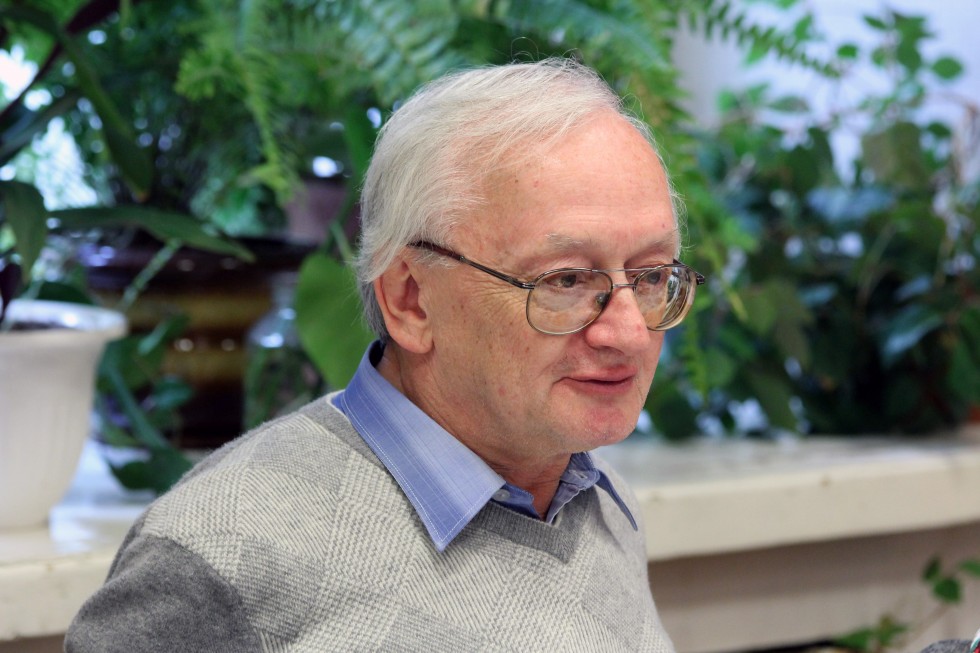
Aleksej Starobinskij
How is God’s created activity manifest in our time – i.e. after the creation of the world in the time when He, according to the biblical account, “rested from all the work that He had made”? How is God’s creativity distinct from man’s and how is it similar? “They are difficult to separate from each other insofar as man is God'’ creation which bears His image and is called to serve by “cultivating and taking care of” the world,” says senior researcher at the Physical Institute of the Russian Academy of Sciences Maxim Zelnikov, who is also a Senior Lecturer at SFI. “In other words, according to the Bible, co-creativity with man was part of God’s original plan. After the fall, however, this co-creativity was open to question.”
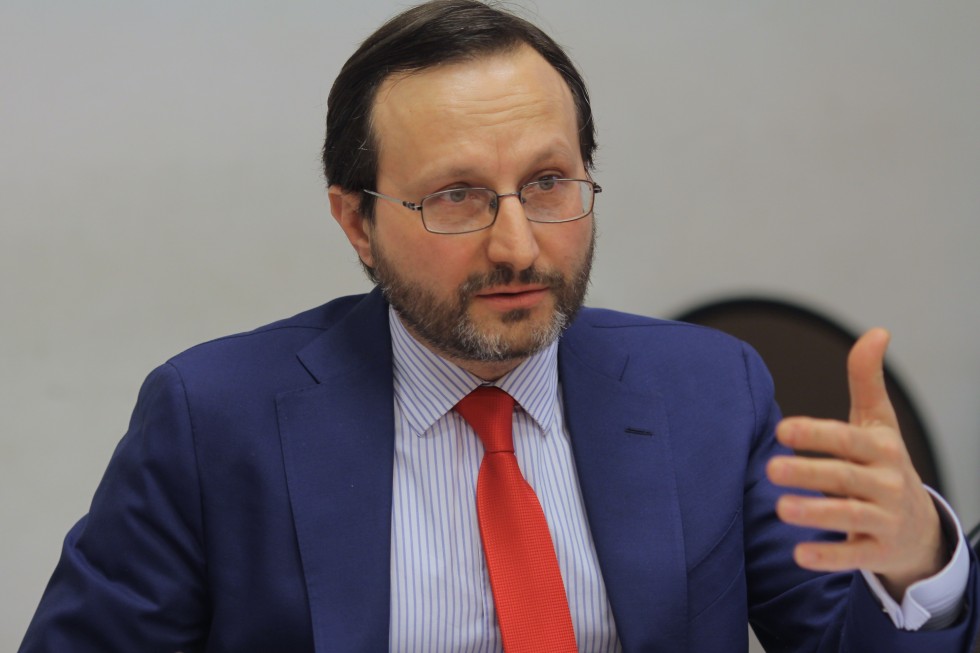
Maxim Zelnikov
A Resting God?
“Man has been given freedom, and his activity – from a scientific perspective as well as from the perspective of Christian faith, doesn’t completely correlate with God’s activity,” says scholar Aleksej Starobinskij. How then are the creativity of God and man connected? Are these correlations positive, for the most part, or negative, or can they be described in some other way? Let us assume that 2000 years ago there was a burst of energy, the results of which we can still see today – in particular in the life of the Church. But can we expect anything that looks similar to that burst – even in the weakest sense – anytime in the near future?”
“I am expecting such a thing,” admits Aleksandr Kopirovskij, head of the SFI Department of Theology. “A 2000-year cycle has obviously come to its conclusion, culminating in a transition to some sort of new level, on which the church is finally leaving the embrace of the state and on which within the church new attitudes toward and relations to science, creativity, culture and being revealed, and there is a sort of new potential. It’s a separate question, however, whether this potential will be embodied in the near future.”
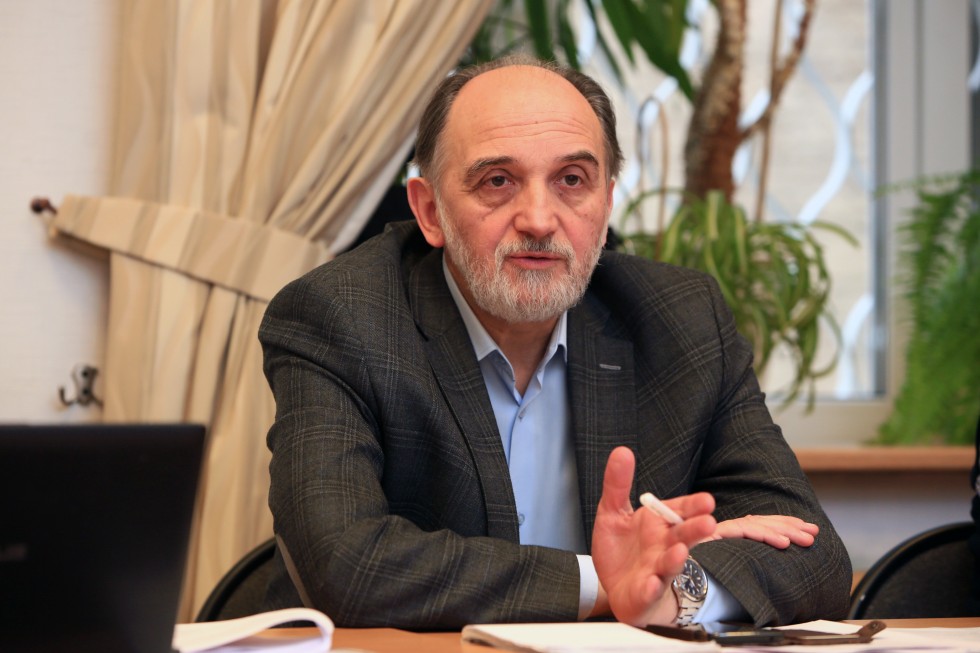
Aleksandr Kopirovskij
In the opinion of historian Gennady Gorelik, people have not been sufficiently conscious of their creative nature. “At one point I was researching the question what church fathers and biblical commentors mean when they speak about man as made in the image of God, and I discovered something amazing,” shared the scholar. “It would seem such an obvious commonality with God, that distinguishes the human being from all other life forms, but man’s creative principle is only interpreted as an element of likeness to God in commentaries on Genesis 1:26 from the 20th century. Before that freedom, intellect and other traits were mentioned, but never creativity.”
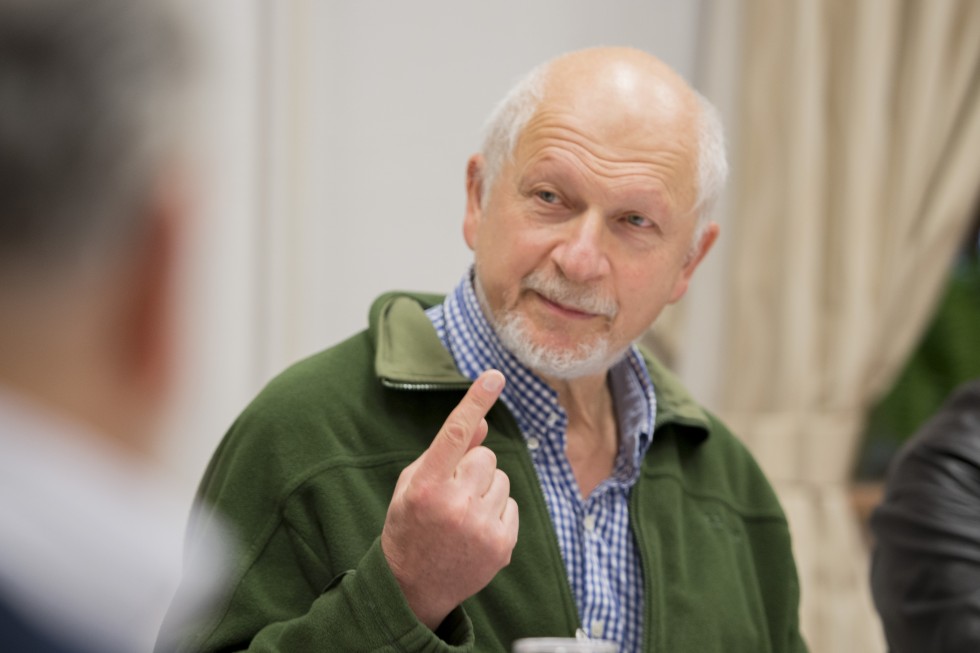
Gennady Gorelik
Ivan Lupandin, Accosiate Professor 0f Philosophy at the Moscow Institute of Physics and Technology, added that in the 9th century, the writer John Scotus Eriugena, who was significantly influenced by St Maximos the Confessor, speaks about creativity when he considers four natures. “Eriugena differentiates between uncreated and creating natures which relate to God, and created and non-creating natures which relate to the material world. The entire spiritual world (including man) is created and creating, and finally, uncreated and non-creating natures are God in a state of Sabbath – the resting God,” said the researcher.
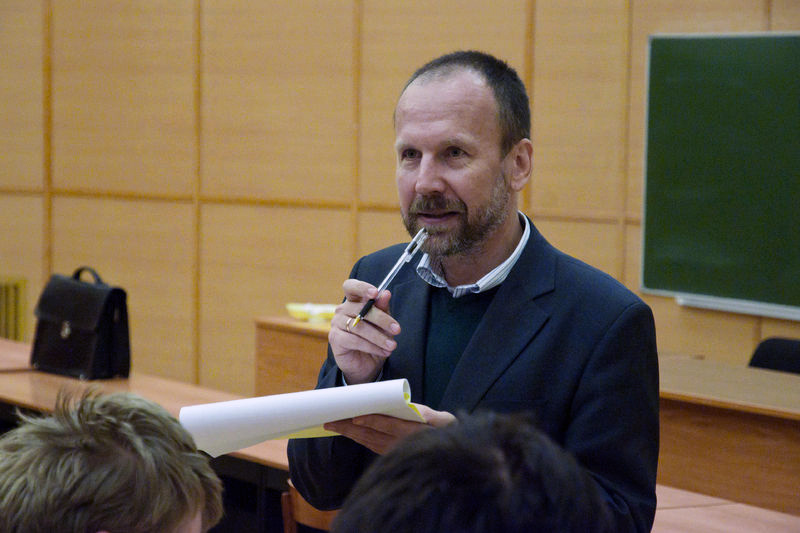
Ivan Lupandin
Can we see a hint at the creative calling of man in this medieval Irish theologian? According to Dean of the Theology Faculty at SFI, David Gzgzjan, when Eriugena uses the expression “creating nature”, “in no way should we understand this in 20th c. terms.” “The question about creativity isn’t under discussion; this is, rather, a means of differentiating different forms of being,” explains Gzgzjan. “And by the way, the word ‘nature’ here should also not be understood in narrow, sharply defined, terms. Eriugena has Aristotle’s sense of the word in mind: here there are 4 natures, which are 4 possible forms of being. Of course, we don’t find anything in the 4th – 5th century fathers about creativity in the sense in which Nietzsche or Berdjaev use the word (the former doesn’t comment on the Biblical text and the later does). The word “creativity”, just as with the word “freedom” in the sense of being a fundamental principle inherent in the human person and making him similar to God, is a 20th century idea.”
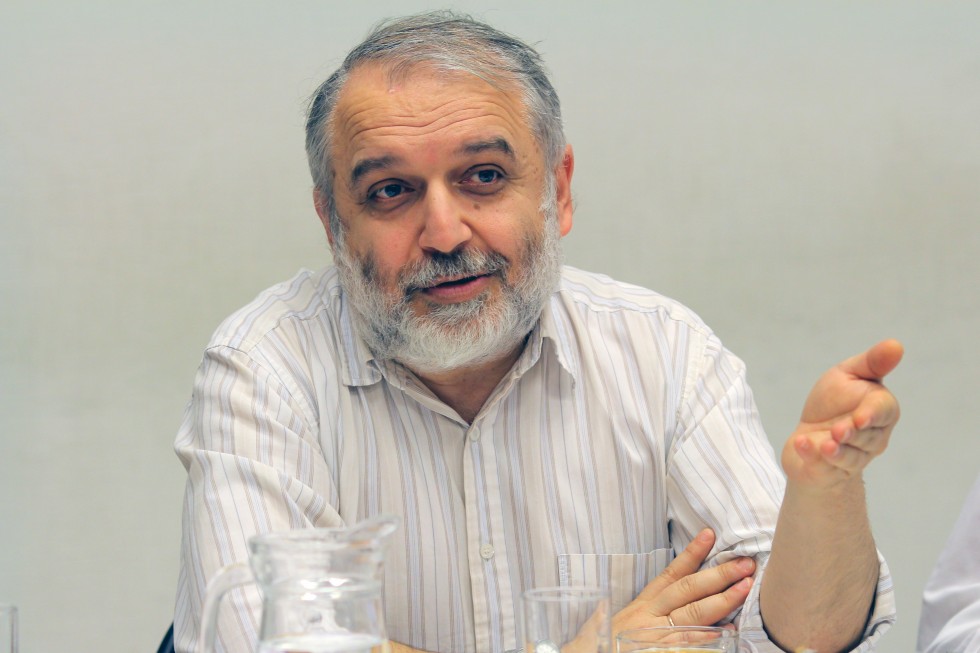
David Gzgzjan
SFI Vice Rector for Academic Work and teacher of New Testament, Larisa Musina, reminded those gathered that the first chapter of Genesis, according to the consensus in modern biblical studies, is one of the latest additions to the Old Testament. “The idea of God as Creator already represents a certain level of human awareness regarding man’s relationship with God,” she clarified. “And, as regards the idea of man as made in the image of God in Gen 1:26, we should make it clear that this verse doesn’t even attract attention of Jewish commentators.”
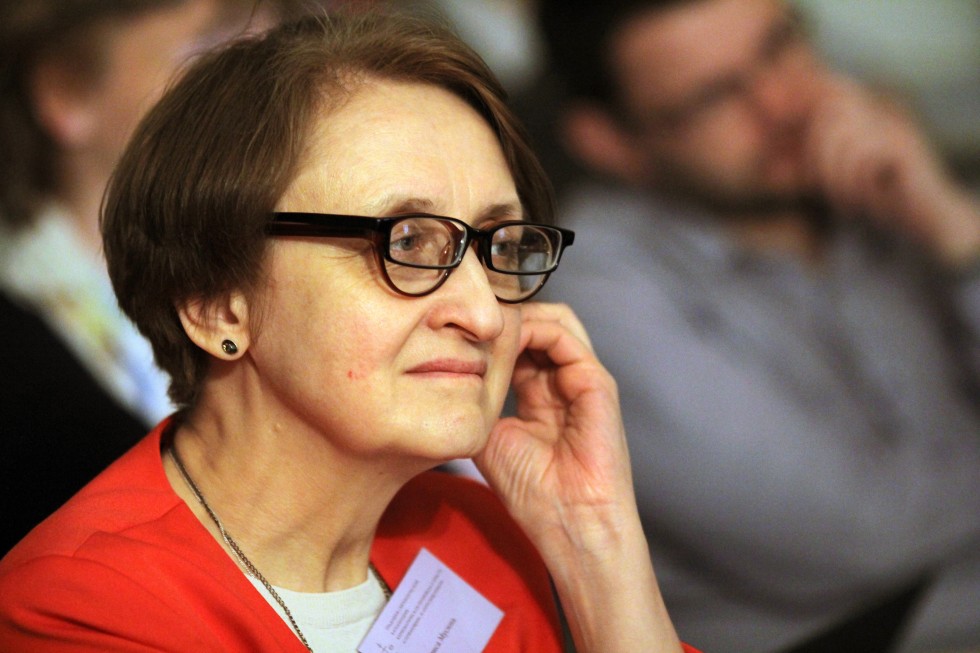
Larisa Musina
“I would more say ‘didn’t attract attention before’”, clarified David Gzgzjan. “There are plenty of commentaries at this point, but in the style of the 4th century fathers, who found the fundamental likeness of man to God primarily in his ability to contemplate Divine/transcendent mysteries.”
Creativity Limited to Within the Confines of the Human Person
Gennady Gorelik believes that a characteristic trait of modern science which bears witness to the novelty of human creativity can be seen in that physicists have “become conscious of their right to think up concepts which don’t necessary follow from empirical experience.” Galileo’s problems, when colleagues refused to accept his understanding, for instance, of empty space, which Aristotle had formerly ‘forbidden’, i.e. shown that it made no logical sense because of the fact that “nothing” can’t be expressed by any sort of constructive understanding,” the scholar said. “The same thing goes for the understanding of gravity, which Newton discovered and which was accepted only with great difficulty, first and foremost by Newton himself and Cartesian thinkers in Europe. And these are creative leaps forward, such as exist also in art and in music…or in any field, when we see something new emerging and don’t understand how it has occurred to someone. And often the inventor himself is hardly able to explain. It's a mysterious happening, which we might call ‘miracle’.”
Professor of the Moscow Engineering Physics Institute National Nuclear University, Sergei Rubin, added the following to the discussion: “I feel that everyone speaking believes that man’s successes in terms of creativity are linked to interaction with God or the creative influence of God. But is it possible for man to be creatively successful without God’s participation? At the end of the day, for the scholars who thought up the atomic bomb this was a creative success. Did God participate in this or was it done without Him?”
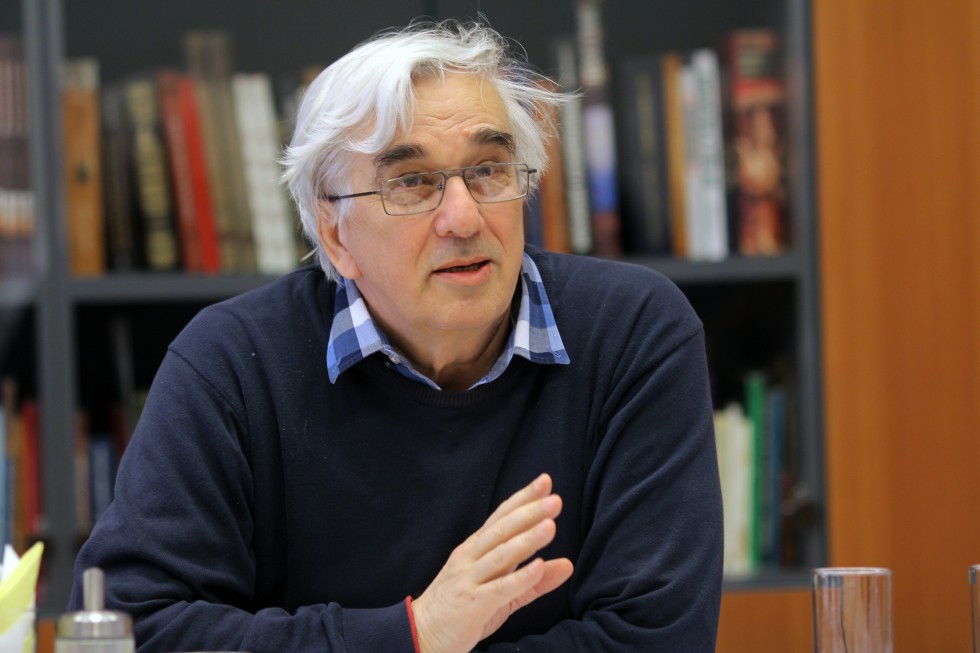
Sergei Rubin
“At first glance it seems as if the question of God’s creativity is easier, insofar as when we read the first chapters of Genesis and look at the light of day, we might say that there was a time when God created without man,” said First Vice Rector of SFI, Dmitry Gasak. “There is a marvellous question in the book of Job, ‘Where were you when I created the heavens and the earth’, and in general, there isn’t really anything that man can say in answer to that question. It turns out that when man brings something new into this world it really isn’t inherently original, and the question arises, can man create anything at all without God? But we can ask this question about man’s creativity a bit differently: is man able to create together with God?
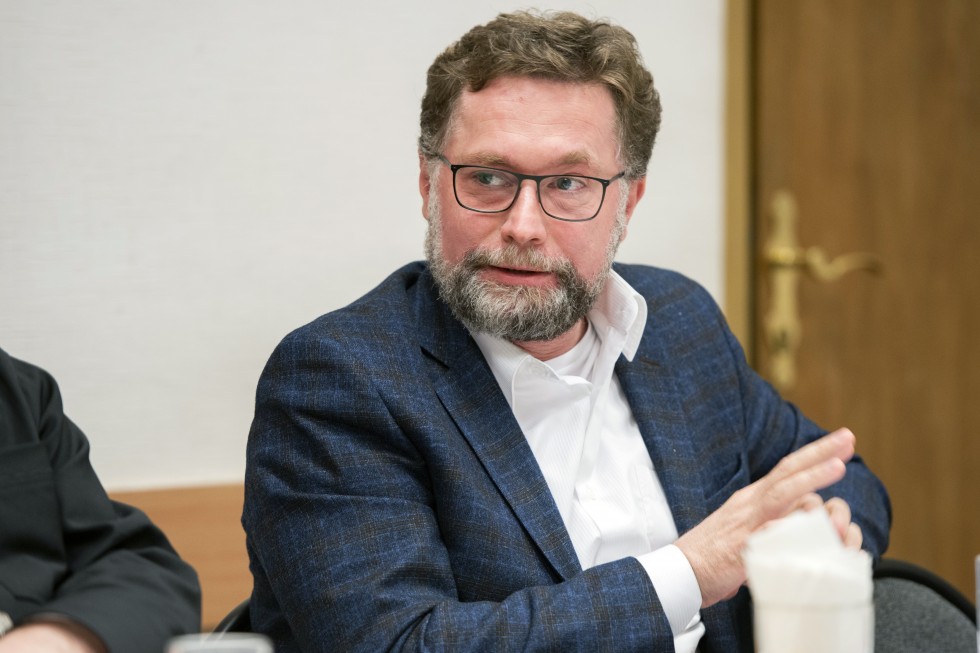
Dmitry Gasak
“If we look at Valentin Serov’s painting “Girl with Peaches” in retrospect, in light of everything else he painted over the course of his life, then the painting provides a broader perspective on his creativity as a whole,” continued Dmitry Gasak. “In just such a way, the life of a human being is more than the sum of any of his activities, and we should consider a person’s life as creativity with or without God as a whole. This is always an open question, linked to the choices the person himself makes. We might remember the unusual appearance of Jesus of Nazareth, who revealed God and man in a new way. And man’s use of his divine principle seems to be related not only to some sort of discoveries or inventions, but with the creation of a certain quality of life which was embodied in the community of Christ and his apostles – the Church, which in ancient times called itself none other than ‘love’.”
“Scientific creativity is really only a very small part of that which we might call creativity,” agreed Dr Starobinskij. “And if we ask a simple person about creativity he might first think not about science, but rather about art or about love. Scientific thought is only a small part of human thought. Even to accomplish anything in academics, it’s necessary to move beyond a field’s narrow borders and into a place where things are much less unambiguous.”
Is creativity within the boundaries of humanity alone possible? “The ‘anatomy’ of creativity has something far more mysterious about it even than the odd flash of intuition,” says neurobiologist Natalia Ivlieva. Many scholars point to such underlying conditions as care (lack of indifference) and sensitivity to an issue or problem – and this is the greatest mystery. Flashes of intuition and the like are more easily explained. When there is no decision, it means that correlation with the issue itself, and sensitivity to it, is non-existent. A decision emerges to the degree that a person lives into an issue or problem, but insofar as living into it implies blurring the lines between subject and object, it also means that observing the process from without is impossible. A decision appears, but we don’t see how it comes about, simply because the issue or problem has become a part of our lives, and of us, ourselves. From this lack of indifference responsibility is born, insofar as responsibility is linked with the creative process, and with its results.”
“Naturally, scholarly creativity isn’t everything,” says Fr Georgy Kochetkov. “And in some sense, scholarly creativity can exist without God, and even requires some distancing from God so as to feel independence and self-sufficiency, given the principles that are accepted at present within the scholarly community. Even if a person discovers something completely new and changes the paradigm, he doesn’t do this ex-nihilo, as it were, but simply finds some sort of new perspective.
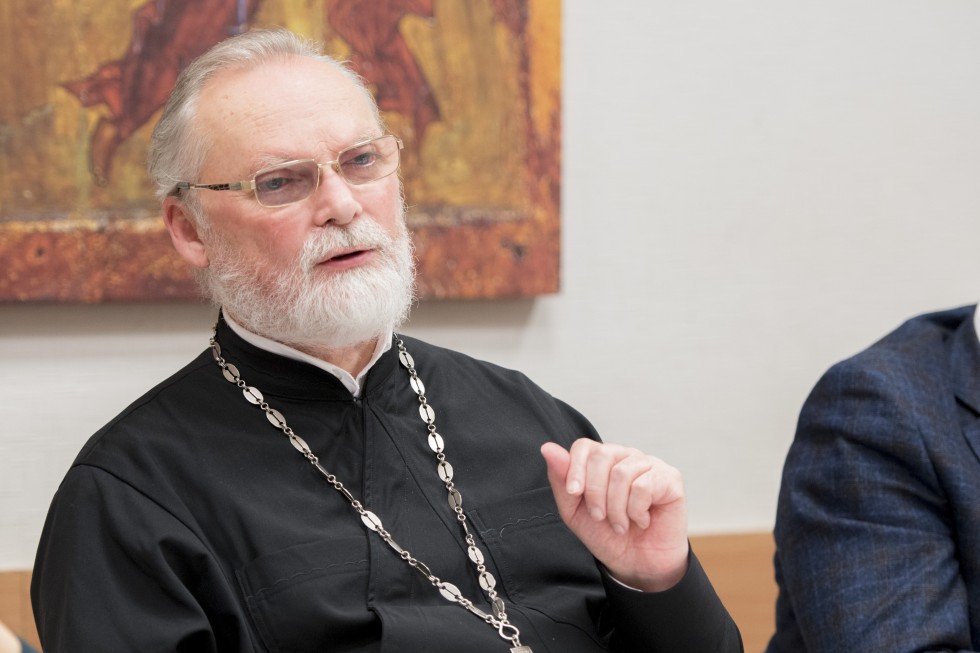
Fr. Georgy Kochetkov
Science and scholarly work always lean on previous discoveries and polymerize them, i.e. dialogue and conversation are always implied, Fr. Georgy stresses. “For this reason, it is appropriate to speak of cooperation with God, and of co-creativity with other people,” he adds. “Can a person not depend upon God, be non-communicative…or unfamiliar with the work of his colleagues, and discover something? Of course he can. It’s simply hard. It’s easier if you are familiar with colleagues’ work, when you are open, and when you depend upon God. Under these conditions, the source of creativity is closer to you. And we throw a spanner into the works when we refuse to cooperate with God and with other people. We cannot know God, and might say, ‘who is God?’, I haven’t met him. We can. But it’s better to spring for the meeting and enter into the synergy, because creativity is energy, and spirit is power. And this synergy that happens when the force of one person enables the force of another person is one of the principle mysteries of creativity. On the one hand, creativity presumes originality, self-sufficiency and freedom. There can be no creativity that is not free. But usually creativity is also impossible without love. We need to love that which we do and that which we behold and the people we come to know. We need to love God, the world and man – this is the essence of the life of every human being and the essence of the human calling and of the meaning of life, itself. How is it that we should live in a different way?
At the same time, it’s difficult to break through to creativity in our time, “it’s difficult to break through to the light – in science, culture, man’s internal life, and in the church,” Fr Georgy believes. “A smattering of ideas and discoveries happened around 100 years ago,” he says. “Now everything seems to come to us with much for difficulty. The 20th and 21st centuries are a time full of contradiction: some possibilities have been closed off to us but others have been revealed. And there are creators in our day and age, but for those who have a creative inclination, life is hardly easy at the moment, just as for believers, because all the authentic qualities of this life are hard to put into practice.”
Part 2: Is Knowledge Power? Scholar Aleksej Starobinskij Questions Theologians
The “Physics and Theology” seminar has been a part of life at SFI since 2013. Its goal is to restore the tradition of free-flowing dialogue between representatives of the hard sciences and of Christian Theology.
The following people took part in the round table discussion on the 27th of December, 2020: Boris Aliev – Associate Professor at the Moscow State University of Design and Technology; Vladimir Velichanskij – Chief Research Scientist at the Lebedev Physical Institute of the Russian Academy of Sciences; Dmitry Gasak – First Vice-Rector at St. Philaret’s Orthodox Christian Institute (SFI); David Gzgzjan – Dean of the SFI Faculty of Theology; Gennady Gorelik – Research Fellow at the Centre for Philosophy and the History of Science at Boston University; Dmitry Zimin – Trustee and Honorary Preseident at the company VimpelCom, Founder of the Dynastia Fund and the Prosvetitelj Prize (Enlightener Prize); Maxim Zelnikov – Senior Researcher at the Lebedev Physical Institute of the Russian Academy of Sciences and Senior Lecturer at SFI; Natalia Ivlieva – Researcher at the Institute of Higher Nervous Activity and Neurophysiology of the Russian Academy of Sciences; Aleksandr Kopirovsky – Head of the Department of Theology at SFI; Fr. Georgy Kochetkov – Editor-in-Chief of the SFI Quarterly Journal (“Vestnik SFI”); Ivan Lupandin – Associate Professor in Philosophy at the Moscow Institute of Physics and Technology; Larisa Musina – SFI Vice Rector for Academic Work and teacher of New Testament; Ekaterina Polyakova – Privat-Docent (Freelance Lecturer) at Ernst-Moritz-Arndt-Universität Greifswald and Associate Professor at SFI; Sergei Rubin – Professor of General Physics and Particle Physics at Moscow Engineering Physics Institute National Nuclear University; Aleksej Starobinskij – Chief Researcher at the Landau Institute of Theoretical Physics and member of the Russian Academy of Sciences; Galina Shpatakovskaja – Chief Researcher at the Keldysha Institute of Applied Mathematics and Associate Professor at SFI.
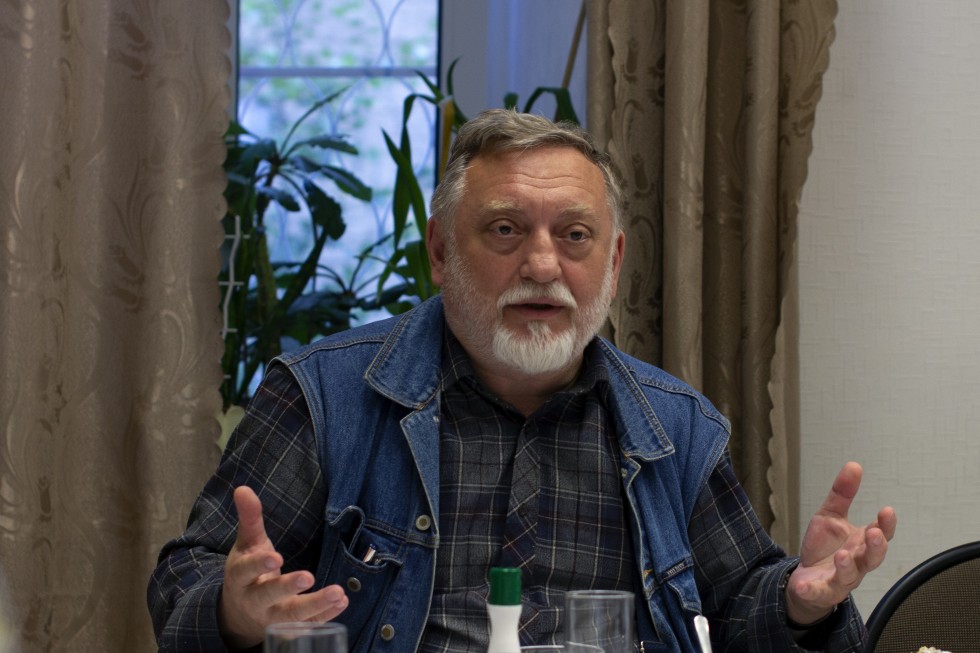
Boris Aliev
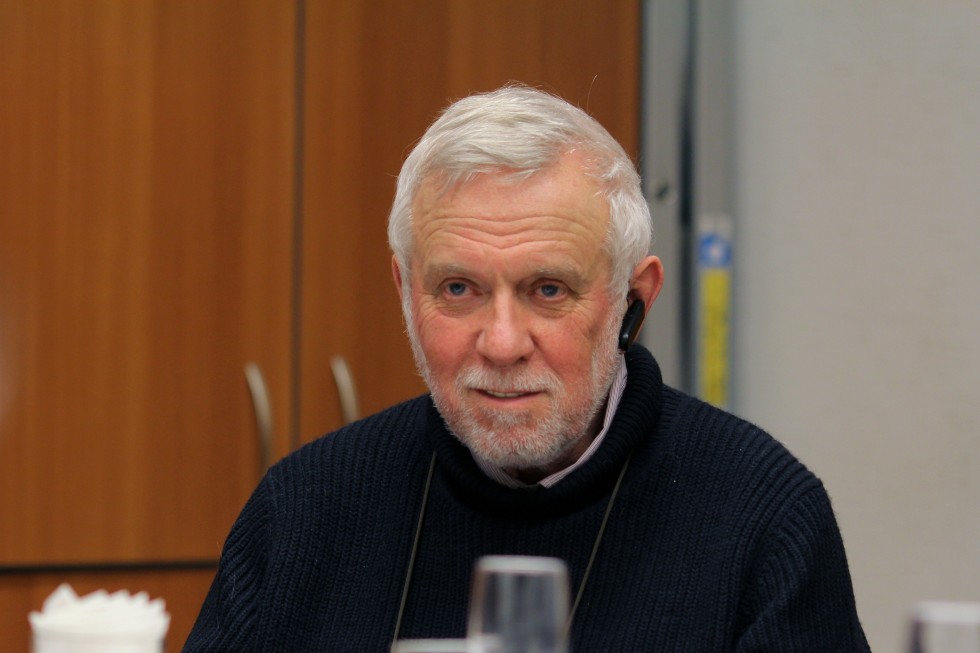
Vladimir Velichanskij
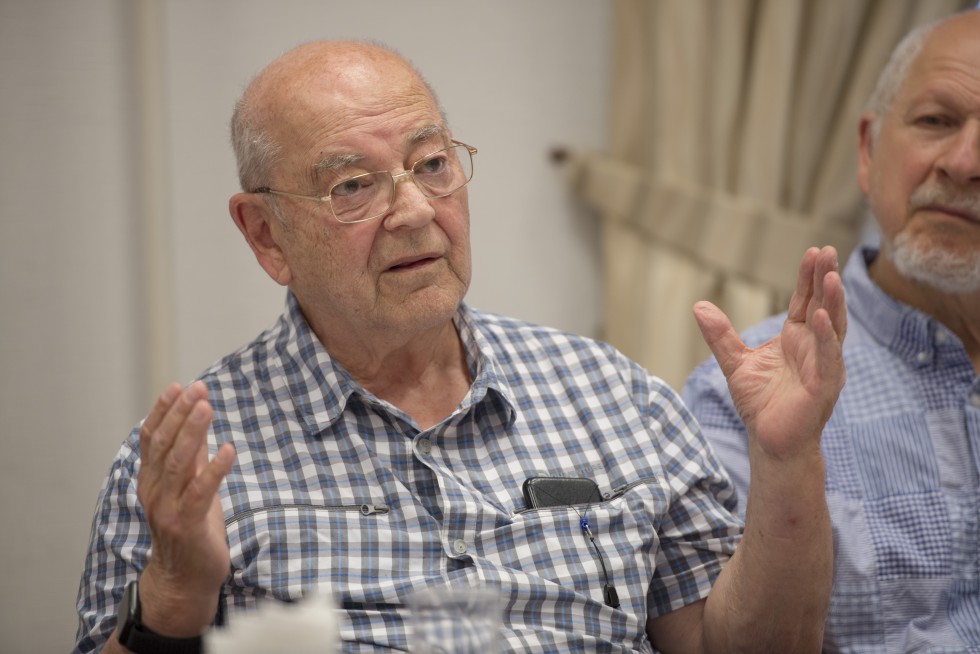
Dmitry Zimin
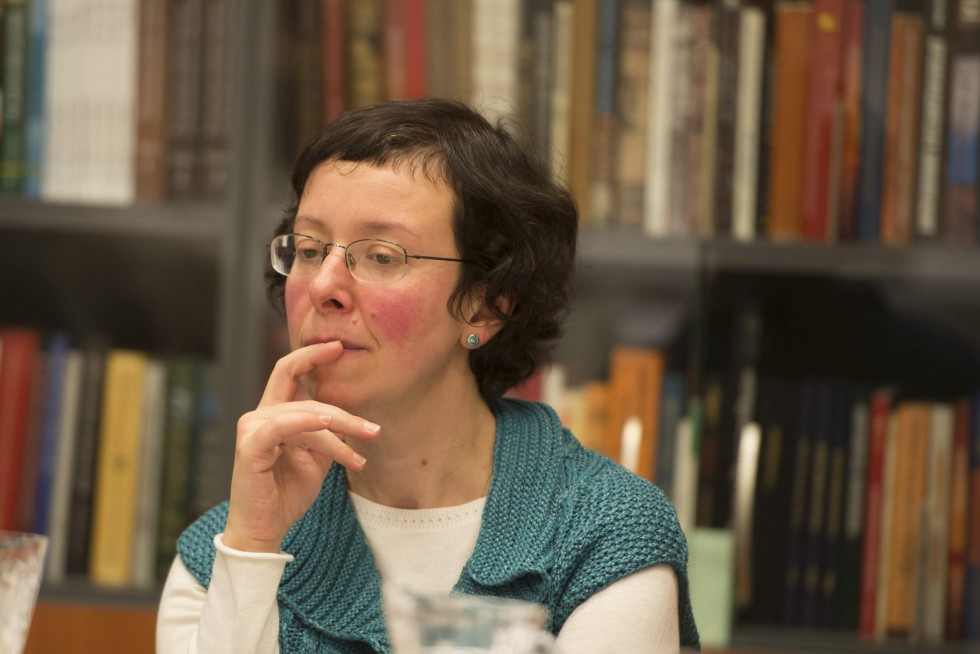
Ekaterina Polyakova
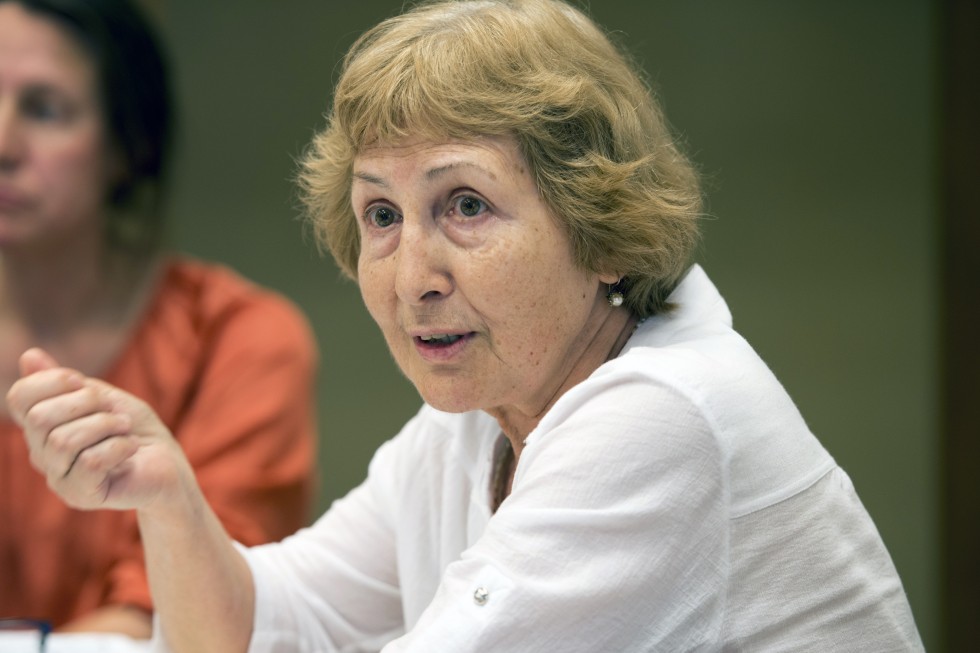
Galina Shpatakovskaja
